Current Students

Saki Amagai
Entry year: 2021
Program: Health and Biomedical Informatics (HBMI)
Advisor: Yuan Luo, PhD

Saki Amagai
Entry year: 2021
Program: Health and Biomedical Informatics (HBMI)
Advisor: Yuan Luo, PhD
Bio: Saki received her BA in Chemistry (minor in Biochemistry) from Carleton College. Prior to joining HSIP, Saki worked with a team within Northwestern University Medical Social Science Department to develop a smartphone app to remotely assess cognitive function. As a PhD student on the Health and Bioinformatics track, she is interested in using technology and big data to better understand health and promote healthy aging.

Benjamin Barrett
Entry year: 2021
Program: Health and Biomedical Informatics (HBMI)
Advisor: Abel Kho, MD

Benjamin Barrett
Entry year: 2021
Program: Health and Biomedical Informatics (HBMI)
Advisor: Abel Kho, MD
Bio: Ben received a B.A. in Biology and Sociology from Bucknell University and an Sc.M. in Epidemiology from the Johns Hopkins Bloomberg School of Public Health. Prior to entering HSIP he worked as a biostatistician for the MACS/WIHS Combined Cohort Study, a prospective cohort study of HIV infection. His research in HSIP is focused on helping to develop a Heat Vulnerability Index for the city of Chicago that is centered on community engagement and collaboration, generating prevalence estimates of chronic disease from electronic health record data in collaboration with the Chicago Department of Public Health, and using large language models for unsupervised phenotyping within electronic health records.

Mercy Berchie
Entry year: 2023
Program: Health and Biomedical Informatics (HBMI)
Advisor: Norrina Bai Allen, PhD

Mercy Berchie
Entry year: 2023
Program: Health and Biomedical Informatics (HBMI)
Advisor: Norrina Bai Allen, PhD
Bio:
Mercy received her Doctor of Optometry degree from the University of Cape Coast, Ghana. Prior to joining HSIP, she worked as an intern Optometrist and a research and teaching assistant at the Department of Optometry and Vision Science at the University of Cape Coast, Ghana. Her research interests lie in using informatics tools and methodologies to improve health and healthcare, particularly ophthalmic diseases.

Chelsea Brown
Entry year: 2024
Program: Social Sciences and Health (SSH)
Advisor: Chris Rini, PhD

Chelsea Brown
Entry year: 2024
Program: Social Sciences and Health (SSH)
Advisor: Chris Rini, PhD
Bio: Chelsea's work encompasses the development and testing of psychosocial mHealth interventions. She has experience in agile digital health product management and has collaborated on the development and research of several algorithmic mHealth interventions aimed at promoting well-being. Chelsea earned a B.M. in Music Therapy from the University of the Pacific. She completed post-baccalaureate research associate positions at the University of California, Santa Barbara, and the UCLA Medical Center, where she investigated a digital mindfulness intervention for improving focus in teens and explored the role of music therapy interventions in reducing perinatal stress. She has co-authored five publications related to digital interventions, mindfulness, and therapeutic music. Currently, she serves as a co-investigator for an A2 Pilot Award, which aims to utilize machine learning to improve cultural fit for a psychosocial intervention targeting rural older adults at risk for Alzheimer's disease. Chelsea is dedicated to enhancing digital mental health delivery and intervention fit to enhance treatment adherence and accessibility for those who need it most.

Hannah Cheng
Entry year: 2024
Program: Social Sciences and Health (SSH)
Advisor: Chris Rini, PhD

Hannah Cheng
Entry year: 2024
Program: Social Sciences and Health (SSH)
Advisor: Chris Rini, PhD
Bio: Hannah received her BS in Neuroscience and Psychology from the University of Pittsburgh and her MS in Epidemiology and Clinical Research from Stanford University. Before joining HSIP, Hannah worked as a senior research analyst at the Stanford Center for Dissemination and Implementation, where she examined how to effectively and efficiently improve access to addiction treatments. She was also a project manager at the VA Palo Alto Health Care System contributing to research aimed at improving care for underserved Veterans living with HIV, chronic pain, and/or opioid use disorder. Her long-term goal is to leverage implementation science to transform the status quo of healthcare access so that everyone can receive high-quality medical care and live their healthiest life.
Publications: https://www.ncbi.nlm.nih.gov/myncbi/1fIV8mxSO2pEw8/bibliography/public/

Katie Cohen
Entry year: 2023
Program: Social Sciences and Health (SSH)
Advisor: Jessica Schleider, PhD

Katie Cohen
Entry year: 2023
Program: Social Sciences and Health (SSH)
Advisor: Jessica Schleider, PhD
Bio: Katie Cohen received a B.S. in Psychology from the University of South Carolina, an M.A. in Psychology from Stony Brook University, and an M.A. in Clinical Psychology from Northwestern University. Katie is interested in the integration of non-traditional mental health interventions (single session interventions, mental health apps, peer support, etc.) into traditional settings frequented by youth and young adults (schools, primary care, etc.)

Lixuan Cong
Entry year: 2020
Program: Healthcare Quality and Patient Safety (HQPS)
Advisor: Anne Stey, MD & Andrew Berry, PhD, MS

Lixuan Cong
Entry year: 2020
Program: Healthcare Quality and Patient Safety (HQPS)
Advisor: Anne Stey, MD & Andrew Berry, PhD, MS
Bio: Lixuan received her BA in Museum Studies at Fudan University and her Master of Public Policy from Johns Hopkins University Bloomberg School of Public Health. She has extensive research experiences on improving access to health services in both U.S and China. Prior to joining the HSIP program, she worked as a health policy researcher in Shanghai Health Development Research Center. In her PhD study, she hopes to work on applying qualitative methods in program evaluation and learn more about developing interventions that will make better quality of care accessible to underprivileged populations.

Emily Dinelli
Entry year: 2022
Program: Health Services and Outcomes Research (HSOR)
Advisor: Allen W Heinemann, PhD

Emily Dinelli
Entry year: 2022
Program: Health Services and Outcomes Research (HSOR)
Advisor: Allen W Heinemann, PhD
Bio: Emily Dinelli earned her B.S. in Mechanical Engineering from West Texas A&M University and an M.S. in Prosthetics and Orthotics from the University of Texas Southwestern Medical Center. Emily completed her prosthetics residency at the Shirley Ryan AbilityLab, where she contributed to research at the Center for Bionic Medicine, examining the effects of prosthetic mass on energy expenditure for individuals with above-knee amputations. She then completed her orthotics residency at Hanger Clinic, where she contributed to outcomes research with the Hanger Institute for Clinical Research & Education. While completing her Ph.D. in the Health Sciences Integrated Program at Northwestern University, Emily conducts research with Shirley Ryan AbilityLab's Center for Rehabilitation Outcomes Research. Additionally, her dissertation investigates the social needs of Black individuals living with dysvascular amputation, aiming to address health inequities and improve quality of life for underserved communities.

Jenny Ding
Entry year: 2022
Program: Health and Biomedical Informatics (HBMI)
Advisor: Yuan Luo, PhD

Jenny Ding
Entry year: 2022
Program: Health and Biomedical Informatics (HBMI)
Advisor: Yuan Luo, PhD
Bio:

Ngoc Duong
Entry year: 2023
Program: Biostatistics (BIOSTAT)
Advisor: Lucia Petito, PhD & Lihui Zhao, PhD

Ngoc Duong
Entry year: 2023
Program: Biostatistics (BIOSTAT)
Advisor: Lucia Petito, PhD & Lihui Zhao, PhD
Bio: Ngoc obtained his Master's degree in Biostatistics from Columbia University. He then worked as a data analyst in the Department of Pediatrics, Columbia University, where he applied statistical methods to answer questions in population health and health services research. He is interested in learning new methodologies and innovative applications of statistics to help drive knowledge discovery in the health sciences.

Arielle Eagan
Entry year: 2021
Program: Social Sciences and Health (SSH)
Advisor: Lisa R Hirschhorn, MD, MPH

Arielle Eagan
Entry year: 2021
Program: Social Sciences and Health (SSH)
Advisor: Lisa R Hirschhorn, MD, MPH
Bio: Arielle Eagan is a clinical social worker and mixed methods researcher who has worked globally in maco-spaces, including implementing psychosocial support programs in Zambia for adolescents with HIV and working as a Research Fellow for the Minister of Health in Rwanda. She holds a Bachelors in Child Psychology and Sociology, and a Masters in Clinical Social Work from Boston College and has completed two advanced fellowships, one in Pediatric Palliative Care at Harvard Medical School, Dana Farber Cancer Institute, and Boston Children’s Hospital, and the other in Global Health as a part of the Global Health Corps. She has co-authored 27 publications and multiple high-level ministerial disease burden reports for countries including Sierra Leone, Liberia, Afghanistan, and Kenya. At the start of COVID19, she worked in a hospital emergency room social worker in Boston, helping patients navigate COVID19 from psychosocial and social perspectives. Since moving to Chicago, she joined Dr. Jaline Gerardin’s Malaria and COVID19 Disease Modeling lab here at Northwestern, where she led the team’s weekly COVID19 forecasting for the state of Illinois as well as a sentinel surveillance costing project. Arielle is excited to begin a PhD in the Health Integrated Sciences Program here at Northwestern in the fall under the advising of research mentor Dr. Lisa Hirschhorn and to continue to explore implementation in global health.

Chris Eyo
Entry year: 2023
Program: Social Sciences and Health (SSH)
Advisor: Brian Mustanski, PhD

Chris Eyo
Entry year: 2023
Program: Social Sciences and Health (SSH)
Advisor: Brian Mustanski, PhD
Bio: Chris received a BS in Psychology from the University of Maryland, College Park in 2018 and an MA in Adolescent Chemistry Education from Relay Graduate School of Education in 2021. Prior to Northwestern, Chris designed and taught university English courses in Leticia, Colombia through The Fulbright Program, and high school chemistry in Bronx, NY. The advent of the COVID-19 pandemic heavily influenced his decision to pivot to medicine, and after 3 years teaching, he joined the MD/PhD program at Feinberg School of Medicine and the Impact Institute. He is broadly interested in LGBTQIA2S+ [children's] health, policy, and education. Long-term he would like to use his clinical and research training primarily to inform local and federal legislation that govern how racial, sexual, and gender minorities navigate healthcare spaces. His (evolving) clinical interests include pediatrics, emergency medicine, infectious disease, and microbiology. His current graduate research leverages the RADAR study, a long-running multilevel assessment of risk and protective factors for HIV transmission and substance use, to explore barriers and facilitators of substance use disclosure in clinical settings among SGM patients.

Peter Graffy
Entry year: 2021
Program: Health and Biomedical Informatics (HBMI)
Advisor: Abel Kho, MD

Peter Graffy
Entry year: 2021
Program: Health and Biomedical Informatics (HBMI)
Advisor: Abel Kho, MD
Bio: Peter received his BA in Anthropology and Women & Gender Studies from Luther College and his MPH from the University of Wisconsin-Madison. Prior to joining HSIP, Peter was a research coordinator for the ENRICH-US Study as part of the Surgical Outcomes and Quality Improvement Center (SOQIC) at Northwestern. While attending UW-Madison, his work focused on predictive disease modeling using machine learning to measure biomarkers on CT. He has also studied and published on other topics, such as opportunistic screening and detection of osteoporosis, image characterization of liver morphology changes in NAFLD and NASH, effect of gender identity on sexual health practices, and the determinants of homelessness for chronically unhoused individuals. As an HBMI student, Peter is interested in the intersection of GIS spatial analysis and epidemiology, developing computer-aided detection tools for the EHR to opportunistically predict disease, and methods to bridge the gap between the scientific community and the general population.

Vijeeth Guggilla
Entry year: 2023
Program: Health and Biomedical Informatics (HBMI)
Advisor: Theresa Walunas, PhD

Vijeeth Guggilla
Entry year: 2023
Program: Health and Biomedical Informatics (HBMI)
Advisor: Theresa Walunas, PhD
Bio: Vijeeth is a current NU MSTP student joining HSIP's Health and Biomedical Informatics track. He received his B.S. in Computer Science and Biological Chemistry with a concentration in Neuroscience from Grinnell College in 2021. During his PhD, Vijeeth is interested in exploring how medical data can be leveraged in predictive contexts that can be translated into tangible clinical practice improvements. He hopes to combine his training from HSIP and medical school to come up with new ways of thinking about and taking advantage of the abundance of available medical data. Outside of school and lab, Vijeeth enjoys playing video games/board games and going to various shows in the Chicago area with his friends.

Sae Han
Entry year: 2020
Program: Health and Biomedical Informatics (HBMI)
Advisor: Nicholas Soulakis, PhD

Sae Han
Entry year: 2020
Program: Health and Biomedical Informatics (HBMI)
Advisor: Nicholas Soulakis, PhD
Bio: Sae earned her B.S. in Human Biology, Health, and Society from Cornell University and her MPH in Sociomedical Sciences from Columbia University. Before beginning her PhD program, she was a Health Communications Fellow at the National Cancer Institute, and later, held roles as a Program Analyst, Clinical Protocol Coordinator, and Scientific Program Manager at the National Institute on Aging. Her research interests lie in public health informatics, with her dissertation focusing on integrating and utilizing LLMs in the ontology development process.
Publications:
Massett, HA [et al, including Han, SH]. Challenges, facilitators, and messaging strategies for Latino populations participating in Alzheimer’s Disease and Related Dementias in clinical research: a literature review. Journal of Alzheimer’s Disease. 2021.

Cassandra Iroz
Entry year: 2018
Program: Healthcare Quality and Patient Safety (HQPS)
Advisor: Julie K Johnson, MSPH, PhD

Cassandra Iroz
Entry year: 2018
Program: Healthcare Quality and Patient Safety (HQPS)
Advisor: Julie K Johnson, MSPH, PhD
Bio: Cassandra is PhD candidate in the Healthcare Quality and Patient Safety Track within the Health Sciences Integrated PhD (HSIP) program. Cassandra earned a BA in Biology from Carleton College and a Master of Science in Health Communication from Northwestern University. Prior to joining the PhD program she worked as a Clinical Research Project Manager within the Northwestern University Clinical and Translational Sciences Institute (NUCATS). She has also worked as a Research Project Manager in the Northwestern Quality Improvement, Research, & Education in Surgery (NQUIRES) and as a team coach with the Microsystem Academy. Her dissertation is focused on transitions of care and care coordination between chronic disease management and surgical care.

Hyojung Jang
Entry year: 2023
Program: Biostatistics (BIOSTAT)
Advisor: Lili Zhao, PhD, MS

Hyojung Jang
Entry year: 2023
Program: Biostatistics (BIOSTAT)
Advisor: Lili Zhao, PhD, MS
Bio: Hyojung received her B.S. and M.S. in Applied Mathematics & Statistics from Stony Brook University. Her fields of interest includes: Microbiome, Machine Learning, Causal Inference, Survival Analysis, and Personalized Medicine. She plans to study statistical theories and methods more deeply at the beginning of my PhD training. Hyojung will then dig deeper into new research topics and develop new statistical methods eventually. Furthermore, she hopes to participate in comprehensive biomedical studies in interdisciplinary collaborations with experts in the field.
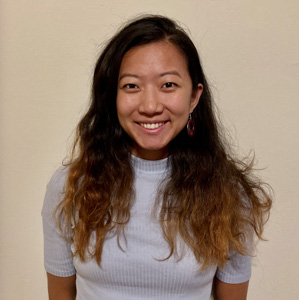
Hanzi (Maria) Jiang
Entry year: 2023
Program: Health Services and Outcomes Research (HSOR)
Advisor: Megan McHugh, PhD

Hanzi (Maria) Jiang
Entry year: 2023
Program: Health Services and Outcomes Research (HSOR)
Advisor: Megan McHugh, PhD
Bio: Hanzi (Maria) Jiang received her Master's in Public Policy from the University of Chicago. Upon graduating, Hanzi served as a Data Analyst at West Side United of Rush University Medical Center. Her work focused on evaluating community health initiatives on Chicago's West Side through data analysis and community-based participatory research. Hanzi's research interest lies in the intersection between social epidemiology and health services research. As a PhD student at HSIP, Hanzi would like to continue exploring research methods that utilize epidemiologic, spatial, and socioeconomic data for a better understanding of the impact of health inequity, as well as econometrics methods to advance the evaluations of policy interventions.
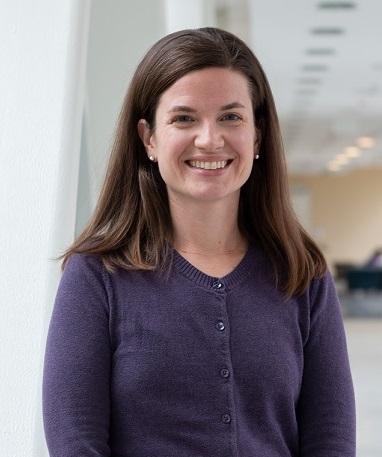
Amy Krefman
Entry year: 2024
Program: Health and Biomedical Informatics (HBMI)
Advisor: Theresa Walunas, PhD

Amy Krefman
Entry year: 2024
Program: Health and Biomedical Informatics (HBMI)
Advisor: Theresa Walunas, PhD
Bio:
Amy received a B.A. in Art History from Dartmouth College and an M.S. in Epidemiology and Biostatistics from Northwestern University. Prior to entering HSIP, she worked in the Department of Preventive Medicine at Northwestern, most recently as Assistant Director of Data and Statistics for the Northwestern University Data Analysis and Coordinating Center (NUDACC). Past research includes longitudinal patterns in cardiovascular health, data harmonization of cardiovascular and dementia-related data, and estimating family trees using electronic health records. Her research interests include data visualization, harmonization, communication, and best practices for data collection and management in reproducible research.

Cheol Min (Matthew) Lee
Entry year: 2023
Program: Health and Biomedical Informatics (HBMI)
Advisor: Nelson Sanchez-Pinto, MD, MBI, FAMIA

Cheol Min (Matthew) Lee
Entry year: 2023
Program: Health and Biomedical Informatics (HBMI)
Advisor: Nelson Sanchez-Pinto, MD, MBI, FAMIA
Bio: Cheol Min (Matthew) received his Doctor of Pharmacy degree at Massachusetts College of Pharmacy. Before joining HSIP, he studied Biomedical Informatics at Washington University in St. Louis and gained research experience on Alzheimer's Diseases and aging at WashU NeuroGenomics and Informatics Center. At Northwestern, Matthew will continue to study Health and Biomedical Informatics and aim to enhance biomedicine by leveraging informatics. He is also a big fan of soccer and enjoys watching movies.

Lauren Leviton
Entry year: 2021
Program: Healthcare Quality and Patient Safety (HQPS)
Advisor: Neil Jordan, PhD

Lauren Leviton
Entry year: 2021
Program: Healthcare Quality and Patient Safety (HQPS)
Advisor: Neil Jordan, PhD
Bio: Lauren earned her Master’s in Social Work from the Crown Family School of Social Work, Policy, and Practice at the University of Chicago. Prior to joining the PhD program, she worked as a Social Worker in the Division of General Internal Medicine and Geriatrics at Northwestern Medical Group where she developed and implemented the first primary care social work role in the division. She also worked at Lurie Children’s Hospital as a Social Worker in the Division of Genetics and provided direct patient care to individuals and caregivers impacted by rare genetic conditions. Lauren is pursuing a PhD to contribute to research in the area of social determinants of health and healthcare disparities through a quality and safety framework.

Yikuan Li
Entry year: 2019
Program: Health and Biomedical Informatics (HBMI)
Advisor: Yuan Luo, PhD

Yikuan Li
Entry year: 2019
Program: Health and Biomedical Informatics (HBMI)
Advisor: Yuan Luo, PhD
Bio: Yikuan received his B.S. degree in Information Engineering from Shanghai Jiao Tong University and later M.S. in Electrical Engineering from Northwestern University. Prior to joining in the doctoral program, he worked on applying natural language processing and machine learning to build clinical predictive models with Electronic health record (EHR) data. He also has industrial experience in Microsoft as a support engineering intern and in IQVIA as a consulting intern. His research interests include integrating informatics into healthcare to deliver a better treatment to patients and improve the population’s health outcomes.
Publications:
Wang, Hanyin, Yikuan Li, Meghan Hutch, Andrew Naidech, and Yuan Luo. "Using Tweets to Understand How COVID-19-Related Health Beliefs Are Affected in the Age of Social Media: Twitter Data Analysis Study." Journal of medical Internet research 23, no. 2 (2021): e26302.
Li, Yikuan, Hanyin Wang, and Yuan Luo. "A comparison of pre-trained vision-and-language models for multimodal representation learning across medical images and reports." In 2020 IEEE International Conference on Bioinformatics and Biomedicine (BIBM), pp. 1999-2004. IEEE, 2020.
Wang, Hanyin, Yikuan Li, Seema A. Khan, and Yuan Luo. "Prediction of breast cancer distant recurrence using natural language processing and knowledge-guided convolutional neural network." Artificial intelligence in medicine 110 (2020): 101977.
Wang, Hanyin, Yikuan Li, Hongyan Ning, John Wilkins, Donald Lloyd-Jones, and Yuan Luo. "Using Machine Learning to Integrate Socio-Behavioral Factors in Predicting Cardiovascular-Related Mortality Risk." In MedInfo, pp. 433-437. 2019.

William Liem
Entry year: 2021
Program: Social Sciences and Health (SSH)
Advisor: Andrew Berry, PhD

William Liem
Entry year: 2021
Program: Social Sciences and Health (SSH)
Advisor: Andrew Berry, PhD
Bio:

Yueming Liu
Entry year: 2022
Program: Biostatistics (BIOSTAT)
Advisor: Denise Scholtens, PhD

Yueming Liu
Entry year: 2022
Program: Biostatistics (BIOSTAT)
Advisor: Denise Scholtens, PhD
Bio: Yueming is a PhD student in the biostatistics track of HSIP program. She holds her Bachelor degree from University of Waterloo and her MS in biostatistics from Northwestern University. Intrigued by the field of biostatistics during previous study and research experiences, Yueming is developing broad interests in clinical trial, causal inference, survival analysis, and longitudinal analysis. For her PhD study, she hopes to explore more in the intersection of methodology and applications, such as disease prevention and precision medicine with the recent tools of high dimensional data analysis and interpretable machine learning.

Roberto Lopez-Rosado
Entry year: 2021
Program: Health Services and Outcomes Research (HSOR)
Advisor: Allen Heinemann, PhD

Roberto Lopez-Rosado
Entry year: 2021
Program: Health Services and Outcomes Research (HSOR)
Advisor: Allen Heinemann, PhD
Bio: Roberto earned a Masters degree in Anatomy from Universidad Central del Caribe, in his native Puerto Rico, and a Doctorate in Physical Therapy from The Sage Colleges, New York. He teaches gross anatomy and neuroanatomy at Northwestern University. His PhD interests include rehabilitation service utilization for individuals following spinal cord injury.

Zhidi Luo
Entry year: 2022
Program: Health and Biomedical Informatics (HBMI)
Advisor: Richard Epstein, PhD, MPH

Zhidi Luo
Entry year: 2022
Program: Health and Biomedical Informatics (HBMI)
Advisor: Richard Epstein, PhD, MPH
Bio: Zhidi received a B.S. in Mathematics and Applied Mathematics from Sun Yet-Sen University and a M.S. in Financial Mathematics from the University of Chicago. Zhidi has experience working as a quantitative analyst in the financial trading industry, a researcher at Chapin Hall at the University of Chicago, and as a biostatistician in the Mental Health Services and Policy Program in the Department of Psychiatry and Behavioral Sciences at Northwestern University Feinberg School of Medicine. He has designed data warehouses, developed statistical plans, implemented research designs, and built predictive analytic and machine learning models. As a PhD student in Health and Biomedical Informatics track, Zhidi will focus on applying machine learning methods to child health services and outcomes research.

Jake Mackie
Entry year: 2024
Program: Health Services and Outcomes Research (HSOR)
Advisor: Lucy Bilaver, PhD

Jake Mackie
Entry year: 2024
Program: Health Services and Outcomes Research (HSOR)
Advisor: Lucy Bilaver, PhD
Bio: Jake received his MS in Data Science from the University of Kentucky, where he studied applications of machine learning in the prediction of healthcare utilization. Prior to joining HSIP, Jake was health policy and health services researcher in a joint position between the University of Kentucky's Institute for Biomedical Informatics and the Kentucky Cabinet for Health and Family Services. At Northwestern, he intends to further explore methodologies to better understand geographic disparities in health services utilization and health risk factors.

Chuanfen Ni
Entry year: 2022
Program: Healthcare Quality and Patient Safety (HQPS)
Advisor: Nandita Nadig, MD, MS

Chuanfen Ni
Entry year: 2022
Program: Healthcare Quality and Patient Safety (HQPS)
Advisor: Nandita Nadig, MD, MS
Bio: Chuanfen received her Bachelor of Laws in Economic Laws from East China University of Political Science and Law and her Master of Social Work from Washington University in St. Louis. Before joining the PhD program, Chuanfen studied policy analysis at Harris School of Public Policy at The University of Chicago. Chuanfen also has worked as a reporter and editor in China, a public health services intern at St. Louis Health Department, and a social worker in rural Missouri. She has leveraged her coaching and management skills to help hundreds of patients access care, improve direct service quality, tackle crises, outreach and engage patients in service. As a PhD student, she hopes to design patient-centered techniques to develop solutions that make healthcare service delivery a more efficient, equitable, and ethical practice.
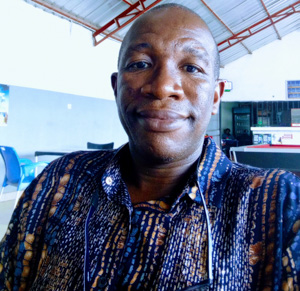
Emmanuel Okpetu
Entry year: 2022
Program: Health Services and Outcomes Research (HSOR)
Advisor: Lisa R Hirschhorn, MD, MPH

Emmanuel Okpetu
Entry year: 2022
Program: Health Services and Outcomes Research (HSOR)
Advisor: Lisa R Hirschhorn, MD, MPH
Bio: Emmanuel Iroboudu Okpetu served as the district level Director of the Primary Health Care Department, Kuje Area Council of the Federal Capital Territory, Abuja, Nigeria from February 2021 to August 2022. He has an MPH (2013) degree from the Royal Tropical Institute/VU University Amsterdam, Netherlands and an MBBS degree (2006) from the University of Jos, Nigeria. He has 14 years public health experience with expertise in implementing Primary Health Care (PHC) interventions in resource constrained settings both locally and internationally,. He was a volunteer stop transmission of polio consultant for the CDC/WHO global polio eradication initiative, serving in Ethiopia for 2 years (2016 – 2018). Since 2019, he has been an affiliate researcher with the transforming hypertension treatment in Nigeria implementation research anchored by the University of Abuja Cardiovascular Research Unit in collaboration with Northwestern University. Emmanuel participated in the global alliance for chronic diseases 4th implementation science school 2021. He is interested in projects that will mitigate the growing burden of Non-Communicable Disease (NCDs) among economically vulnerable populations. He is particularly interested in exploring integration and task shifting options for surveillance and response to NCDs within a PHC system that seems focused on infectious diseases.

Sarah Philbin
Entry year: 2020
Program: Health Services and Outcomes Research (HSOR)
Advisor: Faraz Ahmad, MD, MS

Sarah Philbin
Entry year: 2020
Program: Health Services and Outcomes Research (HSOR)
Advisor: Faraz Ahmad, MD, MS
Bio: Sarah earned a BA in History and International Peace Studies from the University of Notre Dame and an MPH in Sociomedical Sciences from Columbia University. Before joining HSIP, she served as a Senior Program Associate at the Patient-Centered Outcomes Research Institute (PCORI), where she oversaw a diverse portfolio of funded studies, managed pre-award processes for multiple funding announcements, and co-led initiatives in topic development. Her broad research interests focus on understanding how system-level characteristics influence the implementation of evidence-based interventions and policies. Sarah’s dissertation examines the impact of receiving care at federally qualified health centers (FQHCs) on treatment patterns and health services utilization for patients with cardiovascular disease, including those with co-occurring substance use disorders.
Publications:

Tim Schwirtlich
Entry year: 2023
Program: Health and Biomedical Informatics (HBMI)
Advisor: Abel Kho, MD

Tim Schwirtlich
Entry year: 2023
Program: Health and Biomedical Informatics (HBMI)
Advisor: Abel Kho, MD
Bio: Tim has a background in healthcare industry, including integrated B.Sc. Computer Science and M.Sc. Data Science degrees. In his previous role as a R&D Software Engineer at Roche he was developing medical software applications and leading innovation initiatives in the area of Digital Health & Clinical Decision support. Based on his experience with the emerging health data standard HL7 FHIR, he intends to focus his research on the intersection of medical interoperability and Clinical Decision Support. Leveraging cutting-edge AI capabilities his goal is to make an impact in advancing personalized care for patients and providing relief to care providers. In his free time, Tim is a big sports fan, playing soccer & tennis himself but also loves trying out any new kinds of sports.

Lamkur Gabriel Shedul
Entry year: 2022
Program: Health Services and Outcomes Research (HSOR)
Advisor: Lisa R Hirschhorn, MD, MPH

Lamkur Gabriel Shedul
Entry year: 2022
Program: Health Services and Outcomes Research (HSOR)
Advisor: Lisa R Hirschhorn, MD, MPH
Bio: Lamkur had MBBS from the University of Jos in Nigeria before pursuing his Fellowship program with the National Postgraduate Medical College of Nigeria in the Faculty of Family Medicine. As a practicing Family Physician with the University of Abuja Teaching Hospital, he became a member of the Cardiovascular Research Unit of the same institution where he was involved in several research works involving local and international collaborators like Northwestern University. To buttress his research work, he obtained a Masters in Public Health in the University of Abuja. His research interest is in preventive cardiology and task shifting where he train non-physician health workers at primary health care level using a simplified national protocol to diagnose, treat and refer patients with hypertension.
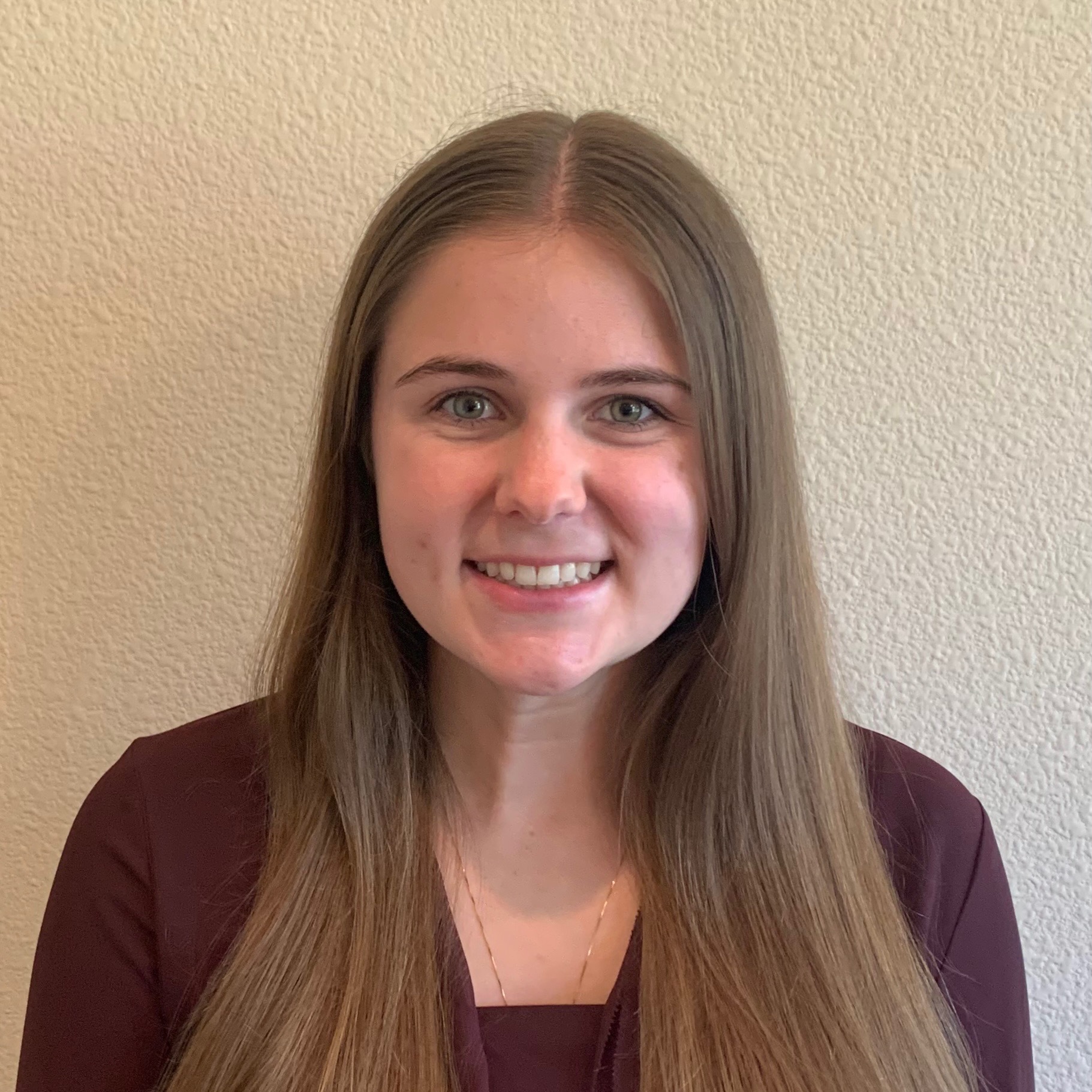
Kate Fiona Simpson
Entry year: 2025
Program: Health and Biomedical Informatics (HBMI)
Advisor: Theresa Walunas, PhD

Kate Fiona Simpson
Entry year: 2025
Program: Health and Biomedical Informatics (HBMI)
Advisor: Theresa Walunas, PhD
Bio: Kate is a current NU MSTP student joining HSIP’s Health and Biomedical Informatics track. She received her B.A. in Biology from Washington University in St. Louis in 2019 and subsequently completed the postbaccalaureate intramural research training program at the NIH. During her PhD, Kate hopes to use electronic health record and biorepository data to study inflammatory airway diseases like pneumonia and asthma. She hopes to use her PhD and MD training to develop new informatics tools to improve patient care. Outside of school and lab, Kate enjoys spending time outdoors with her partner, son, and King Charles Spaniel.

Mindy Szeto
Entry year: 2022
Program: Health and Biomedical Informatics (HBMI)
Advisor: Donald M Lloyd-Jones, MD, ScM

Mindy Szeto
Entry year: 2022
Program: Health and Biomedical Informatics (HBMI)
Advisor: Donald M Lloyd-Jones, MD, ScM
Bio: Mindy trained at the University of Washington, University of Colorado, and Johns Hopkins University in math modeling, protein engineering, and bioinformatics before joining HSIP's Health and Biomedical Informatics Track. She has experience leading genetic epidemiology studies of complex traits in understudied populations in conjunction with the Jackson Heart Study, the Multi-Ethnic Study of Atherosclerosis, and the NHLBI Trans-Omics for Precision Medicine program. Most recently, she conducted multi-omics and machine learning analyses of rare diseases with patient data, and hopes to integrate novel approaches with EHR information to reduce health disparities and improve precision medicine.

Masayuki Teramoto
Entry year: 2024
Program: Health and Biomedical Informatics (HBMI)
Advisor: Theresa Walunas, PhD

Masayuki Teramoto
Entry year: 2024
Program: Health and Biomedical Informatics (HBMI)
Advisor: Theresa Walunas, PhD
Bio: Masayuki Teramoto (Masa) is a physician-scientist with expertise in cardiovascular prevention. He received his medical degree from Osaka University, a Master of Public Health from Harvard University, and a Master of Advanced Studies in Clinical Research with a specialization in Data Science from UCSF. His research leverages data science and informatics techniques, and focuses on the emerging field of Neurocardiology and the life-course approach to the prevention and control of non-communicable diseases.
Publications: https://scholar.google.com/citations?user=Jqur3CYAAAAJ&hl=en

Tubanji Walubita
Entry year: 2021
Program: Social Sciences and Health (SSH)
Advisor: Jessica Schleider, PhD

Tubanji Walubita
Entry year: 2021
Program: Social Sciences and Health (SSH)
Advisor: Jessica Schleider, PhD
Bio: Tubanji (she/her) earned a B.A. in Biology and Gender, Sexuality, and Women’s Studies from Lake Forest College. She then joined the NIH Postbaccalaureate Research Education Program (PREP) at UMass Chan Medical School, where she studied sexual orientation-based disparities in outcomes such as allostatic load, mental distress, and healthcare satisfaction. As a clinical research assistant at UMass Chan, Tubanji expanded her focus on health disparities by examining racial and ethnic differences in COVID-19 exposure and susceptibility. At Northwestern University, she furthered this work by investigating victimization and bullying disparities among sexual minority adolescents, gaining deeper insights into the challenges faced by underserved communities. Currently, Tubanji’s research bridges health disparities and intervention science. She is dedicated to designing tailored mental health interventions for LGBTQ+ individuals and people of color, combining disparities research with community-engaged approaches. Through her work, Tubanji seeks to illuminate systemic inequities, empower marginalized populations, and advance health equity.

Ping (Stella) Wang
Entry year: 2022
Program: Social Sciences and Health (SSH)
Advisor: Richard C Gershon, PhD

Ping (Stella) Wang
Entry year: 2022
Program: Social Sciences and Health (SSH)
Advisor: Richard C Gershon, PhD
Bio: Ping (Stella) Wang holds a BS from Fudan University, major in Pharmaceutical Science and a MS in Pharmacy Administration from St. John’s University School of Pharmacy. She also studied Epidemiology, Global Health Policy & Management with a Master of Public Health at New York University Global Institute of Public Health. Before joining the PhD program, Stella worked as the Head of Medical Projects and Data Analytics at a clinical-stage biopharmaceutical company in NYC. Stella has over 10 years working experience in pharmaceutical industry in various business, operational, and research functions. Her current research focuses on clinical outcome evaluation in both qualitative and quantitative projects. As a PhD student, Stella is interested in developing innovative health assessments using the latest scientific knowledge. She hopes to use her knowledge to influence health policies and improve population health at a higher level.

Xicheng Xie
Entry year: 2024
Program: Biostatistics (BIOSTAT)
Advisor: Lihui Zuo, PhD

Xicheng Xie
Entry year: 2024
Program: Biostatistics (BIOSTAT)
Advisor: Lihui Zuo, PhD
Bio: Xicheng earned his bachelor's degree in Environmental Science from Shanghai Jiaotong University and subsequently pursued a master’s degree in Biostatistics from Columbia University. His prior research pursuits encompass environmental epidemiology, Bayesian statistics, longitudinal analysis, unsupervised learning, and multi-omics data integration. He contributed as a research assistant to various projects, including building Bayesian spatial-temporal models for monitoring heat stress variation at the census tract level across New York State and developing clustering methods for disease subtyping via multi-omics data integration. In his doctoral studies, he aims to delve deeper into methodological advancements and their applications within data science, statistics, and precision medicine.

Jingzhi (Kevin) Yu
Entry year: 2020
Program: Health and Biomedical Informatics (HBMI)
Advisor: Norrina Bai Allen, PhD

Jingzhi (Kevin) Yu
Entry year: 2020
Program: Health and Biomedical Informatics (HBMI)
Advisor: Norrina Bai Allen, PhD
Bio: Kevin received his B.A. from Northwestern University in Economics and Biology. After graduation, he has been working as a data analyst focusing on health informatics studies on cardiovascular disease outcomes and supporting large research networks such as CAPriCORN, PCORnet, eMERGE, and the All of Us Research Program. He also has industry experience from working as a strategy intern at DaVita Inc. His current research interests include integrating external data sources (sensor data, claims data, patient-reported outcomes, etc.) with Electronic Health Records (EHR) and designing next generation of EHR-based tools and applications for physicians and patients to improve cardiovascular outcomes.

Yuanzhi (Fisher) Yu
Entry year: 2022
Program: Biostatistics (BIOSTAT)
Advisor: Denise Scholtens, PhD

Yuanzhi (Fisher) Yu
Entry year: 2022
Program: Biostatistics (BIOSTAT)
Advisor: Denise Scholtens, PhD
Bio: Yuanzhi completed his undergraduate degree in Life Science and Biotechnology at Wuhan University and his master’s degree in Biostatistics at the Columbia University. His previous works include proposing new imputation method to correct exposure mixture measurement errors in environmental health data and investigating association between chronic disease and metabolomics by Bayesian approaches and machine leaning methods. His research interests are in missing data, machine learning and precision medicine, and he aims to create innovative statistical methods that can extract meaningful insights into complex human diseases and environmental health.

Jiaqi Zhou
Entry year: 2024
Program: Health and Biomedical Informatics (HBMI)
Advisor: Theresa Walunas, PhD

Jiaqi Zhou
Entry year: 2024
Program: Health and Biomedical Informatics (HBMI)
Advisor: Theresa Walunas, PhD
Bio: Jiaqi Zhou holds a B.S. in Biology from Wuhan University and an M.S. in Biomedical Engineering from Tsinghua University. Jiaqi is interested in developing large multimodal models for biomedical applications, including machine learning, integrative genomic analysis, and natural language processing. Her works aim to derive insights from increasingly complex biological datasets, meet the needs of deeper disease interpretation, and improve clinical practice.

Xinyu Zhou
Entry year: 2024
Program: Health and Biomedical Informatics (HBMI)
Advisor: Theresa Walunas, PhD

Xinyu Zhou
Entry year: 2024
Program: Health and Biomedical Informatics (HBMI)
Advisor: Theresa Walunas, PhD
Bio: Xinyu obtained his bachelor's degree from Fudan University and his master's degree from Yale University. His research focuses on natural language processing (NLP), public health informatics, and clinical NLP.

Jiafeng (Jay) Zhu
Entry year: 2022
Program: Biostatistics (BIOSTAT)
Advisor: Lihui Zhao, PhD

Jiafeng (Jay) Zhu
Entry year: 2022
Program: Biostatistics (BIOSTAT)
Advisor: Lihui Zhao, PhD
Bio: Jiafeng (Jay) Zhu is currently a research associate at Johns Hopkin School of Public Health joining the new Biostatistics track of HSIP in Fall 2022. Jay got his B.S. degree at Zhejiang University, China. He got two M.S. degree at Virginia Tech and has been working as research associate for three years at JHU. His research includes study in longitudinal data and aging. In his PhD study, Jay would like to explore new statistical/biostatistical methods as well as cooperate with students in the HSIP and people over the university in different disciplines.
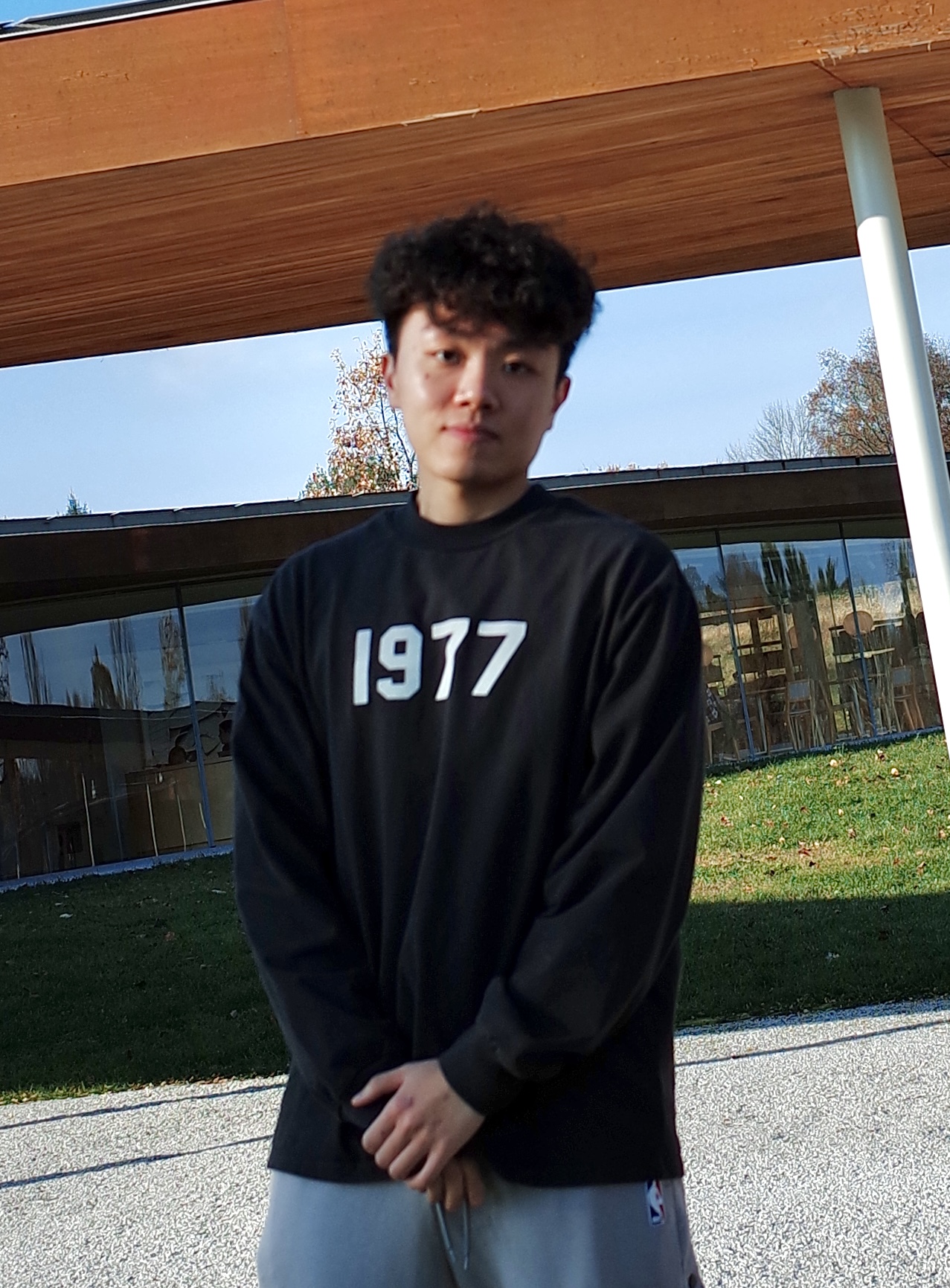
Scott Zuo
Entry year: 2024
Program: Biostatistics (BIOSTAT)
Advisor: Lihui Zuo, PhD

Scott Zuo
Entry year: 2024
Program: Biostatistics (BIOSTAT)
Advisor: Lihui Zuo, PhD
Bio: Scott is a current student joining HSIP's Biostatistics track. He earned his BS in Statistics and Operations Research from Southern Methodist University (SMU) and his Master's in Biostatistics from Yale. His research focuses on causal inference and the application of statistical methodologies in clinical trials to enhance the precision of treatment effect estimates and decision-making in healthcare.